The Human Person in Horizontal and Vertical Perspective
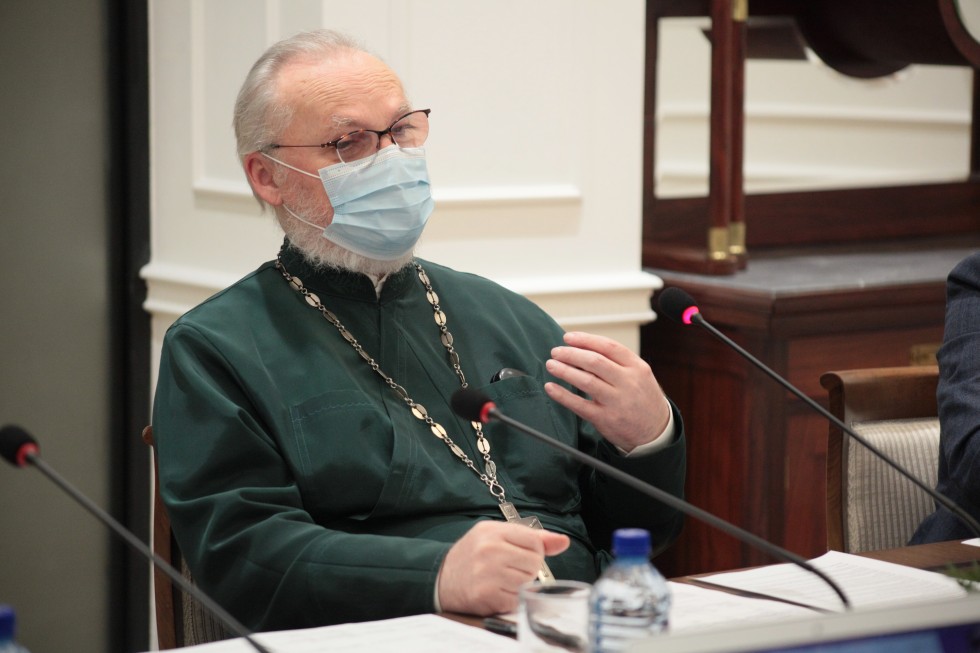
Fr Georgy Kochetkov, PhD in Theology, St Philaret’s Institute Founder, the Editor-in-Chief of the SFI Quarterly
“A New Christian Anthropology: ‘Horizontal’ and ‘Vertical’ Dimensions of the Human Person”, was the title of Fr Georgy Kochetkov’s lecture given to mark the start of the new 2021/2022 academic year at St Philaret’s Institute. This lecture was also taken as the point of departure for the roundtable on the 18th.
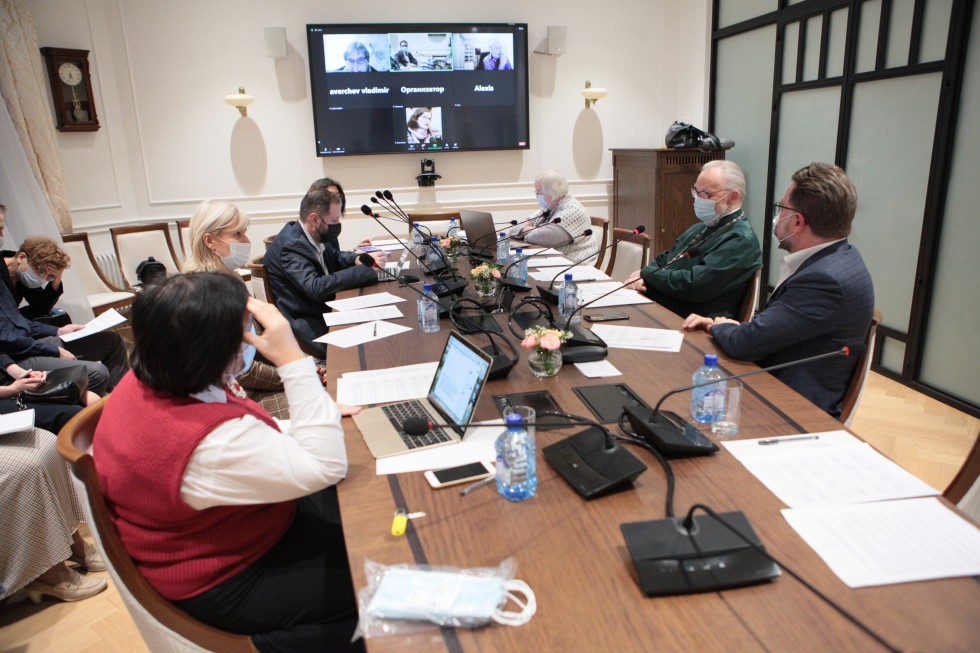
“Our time is a time for various new approaches in the field of Christian Anthropology – philosophical, theological and mystical. I have tried to present the approach which was revealed to me when I was working on Christian Mystagogy – bringing people into the experience of the Church’s dogmas and mysteries in such a way as is possible in our time, after such a lengthy historical hiatus in the composition of works on this aspect of Theology,” said Fr Georgy.
“I wanted to make a departure from the old schemata – from scholasticism and an unnecessarily academic approach,” he added. “In our time, we can certainly feel how important the continuity with ancient anthropological revelation is. But something new is also required.”
“In my lecture on the 1st of September, I very quickly explained the most interesting approaches and schemata for looking at the human person and humanity as a whole, which have been proposed over the course of Christian history,” recalled Fr Georgy, who is also the Editor-in-Chief of the SFI Quarterly. “I stressed that it is important not only to remember the horizontal dimension of the human person, but also to set out an understanding of his vertical dimension, which to a large degree is tied to Christian revelation that has historically been undervalued. Though the 1st through 3rd and very beginning of the 4th century were characterized by attempts to move outside the typical framework for considering the human person, thereafter in history everything started to be reduced to schemata, which were sometimes simplified, as compared to those which had existed in antiquity. Often the human being was simply viewed as soul and body – and that’s all.”
Fr Georgy is quite sure that no one, let alone Christians – should ever use such an understanding. “The initial understanding of man is as a unity of spirit, soul and body – the traditional trichotomy. I have suggested that we consider this to be man’s horizontal dimension, rather than his vertical dimension,” he clarified. “In terms of vertical dimension, I have in mind the interrelationship between individuality, man’s ontological “face”, and personhood or personality. It turns out that on the basis of this understanding it is possible to build a very full-bodied view – a whole matrix which allows us to see the human person from different angles.”
“People have asked me whether it is possible to broaden, extend and add nuance to these vertical and horizontal dimensions,” says Fr Georgy. “Yes, it is possible. For instance, we can go further ‘down’ and see the human person who isn’t a really a full person or personality, has no face and is even crushed and destroyed as an individual – a person who ‘isn’t anyone and doesn’t have a name’. This is a real issue in our time. In the same way, we can extend along the ‘sobornost – conciliarity’ line, and end up with just a meaningless collective mass. And if the collective needs a leader or a boss, and conciliarity demands a head – something like a pope, tsar, patriarch, prince – what have you – then the man in the masses is a really a person without a head, and often enough without his own head, even though he has a dictator – whether dictatorially or democratically provided.”
Roundtable participants shared their thoughts about how this proposed structure “works” within their own disciplines, how it lines up with biblical revelation, what instruments this provides to Philosophy, Liturgics, Political Science, and Philology, and what new possibilities it provides in terms of understanding, for instance, the distinctiveness of 19th century Russian literature.
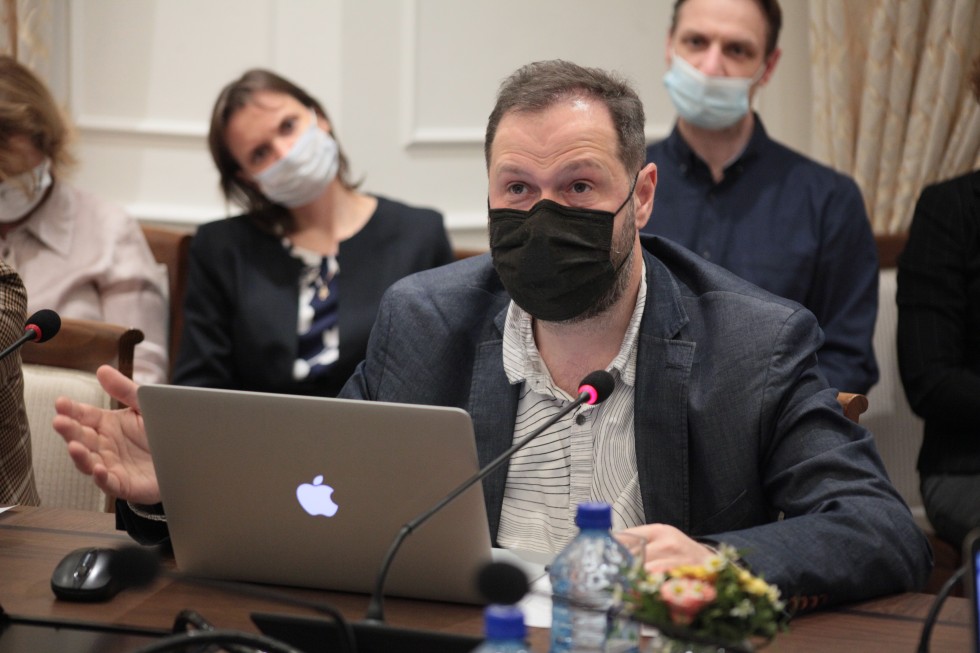
Professor Aleksandr Markov, PhD in Philology, the Film and Modern Arts Department at the Russian State University for the Humanities
Professor Aleksandr Markov, from the Film and Modern Arts Department at the Russian State University for the Humanities, shared with the group that for him Fr Georgy’s keynote address on 1 September, the third stage of catechesis and today’s presentation are one of the most important events in the life of humanities knowledge in recent times. “I see in all this a way out of certain limitations on what is now being referred to as post-human Anthropology. The fact is that criticism of the old secular Anthropology for its aggressiveness, anti-ecological stance, anthropocentrism, and for not leaving any room for theocentrism, is in many respects justified. But at the same time, this criticism is rarely complete in the sense that it leaves various philosophical questions unanswered. The approach proposed by Fr Georgy opens up new and constructive paths in this regard.”
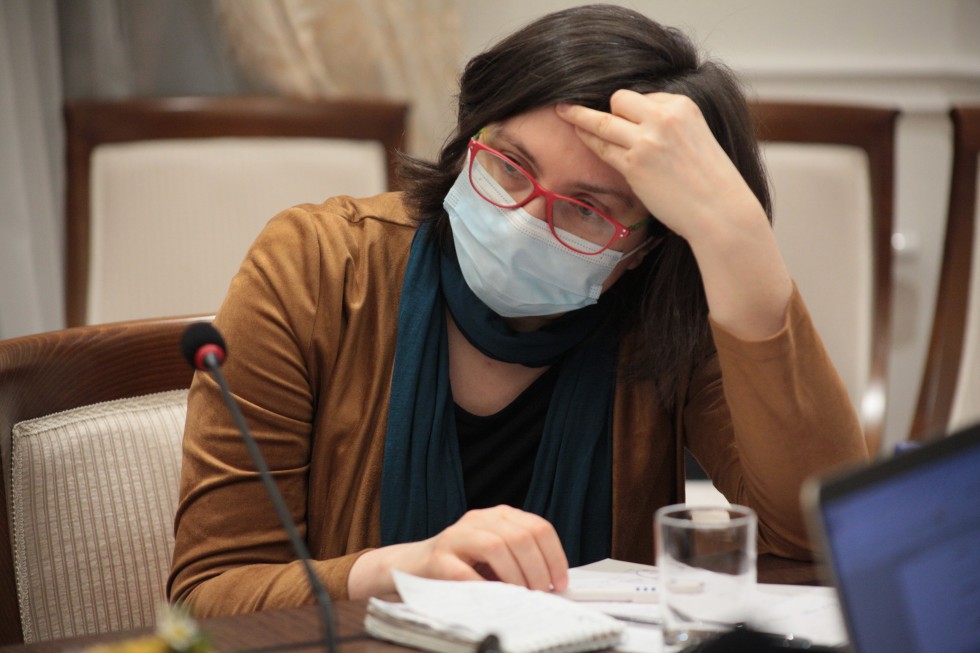
Victoria Fajbyshenko, PhD in Philosophy, SFI Senior Lecturer
“The dynamic relationship between the vertical and that horizonal aspect into which spirit, soul and body are pulled together in an immediate way – i.e., ‘present’ as an integral unity inside of which vertical motion is possible, is an incredibly valuable aspect of Fr Georgy’s proposed structure,” says SFI Senior Lecturer Victoria Fajbyshenko. “I see here a clue to a solution for one of the most fundamental problematics in all of European thought, which in simplified form we might call the opposition between spirit and life. In the classical understanding of antiquity, the rational spirit that points toward the connection between the human person and God, is eternal and not born. And from Plato on, this spirit comes into conflict with the soul. The soul which animates the body – giving it motion – desires at the same time to be free of the body in order to return to its eternal state of existence. The soul is born but wants to escape from its ‘bornness’ and from the burden of life. It’s obvious that Christianity opens up a different way of understanding life. But over and over and on the most diverse levels, European metaphysics fails to find a way to reconcile spirt and life.”
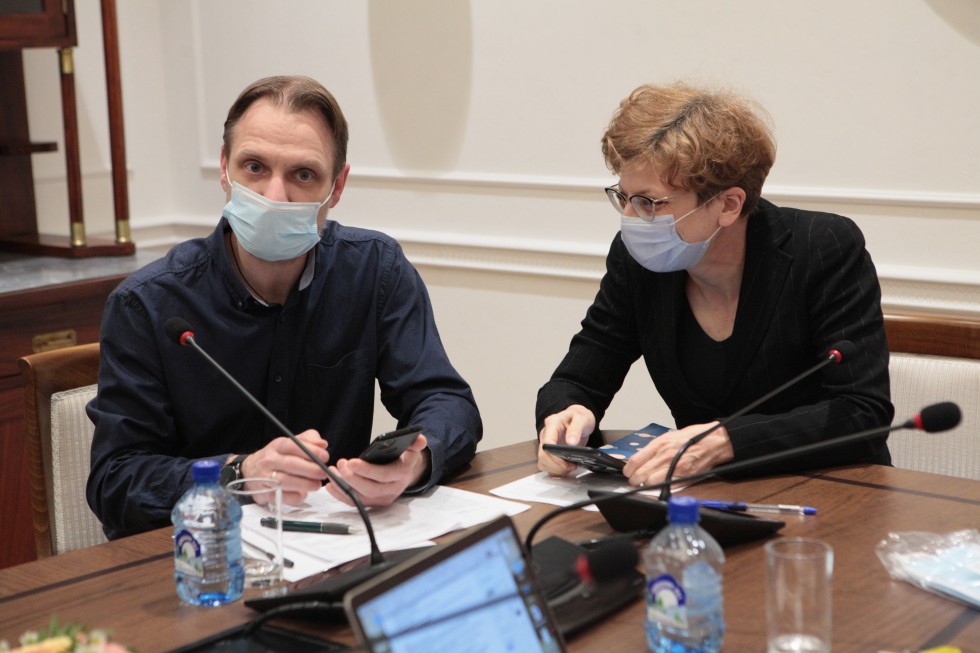
Kirill Mozgov, Senior Lecturer at SFI and Head of SFI Publishing; Zoya Dashevskaya, liturgist and SFI Senior Lecturer, Society of Oriental Liturgy (SOL) member
“Aleksandr Viktorovich Markov has pointed out that in Fr Georgy’s thought we find a new view on the whole structure of the customary hierarchies, and in particular the spirt, soul and body hierarchy that has limited our consciousness to a significant degree,” noted Senior Lecturer and liturgist from SFI, Zoya Dashevskaya. “To speak about the experience of prayer in the customary categories is exceptionally difficult today, because it is rather difficult to describe in these categories what is going on existentially. There is our external view of church liturgy as a collective action, and then the experience of the individual person. But we have to admit that it’s also important who is praying next to you – whether its people you don’t know, neighbours, or brothers and sisters. The approach which Fr Georgy has proposed gives us the possibility of looking at what church worship is within various different boundaries, through the lens of sobornost, conciliarity and collectivity, spirit, soul, and body. It gives us a new language for describing that which is happening not with one human person, but in the church gathering – and not in the categories of psychological impressions, but in a more analytical way. In some sense it is a response to the challenge of one of the leading liturgists of the 20th century, Archimandrite Robert Taft, to look at church worship ‘from the bottom up’ – not from the perspective of texts and propositions, but with the eyes of a participant in the event of worship, itself.”
The following people also took part in the discussions at the roundtable:
Dmitry Gasak, First Vice Rector of SFI;
Yulia Balakshina, SFI Academic Secretary and Deputy Editor-in-Chief of the SFI Quarterly;
David Gzgzyan, Dean of the SFI Theology Faculty;
Margarita Shilkina, Dean of the SFI Religious Studies Faculty;
Marina Naumova, Vice Rector for Development at SFI;
Kirill Mozgov, Head of SFI Publishing;
Aleksei Dunaev, Head Reseacher at Moscow State University’s Institute of World Culture;
Vladimir Averchev, Chairman of the Oversight Committee at the Institute for the Humanities and Political Research;
Elena Miskova, Deputy Head of the Ethnology Department of the Faculty of History at Moscow State University;
Katya Tolstaya, Senior Lecturer at the Faculty of Theology at the Vrije Universiteit Amsterdam.
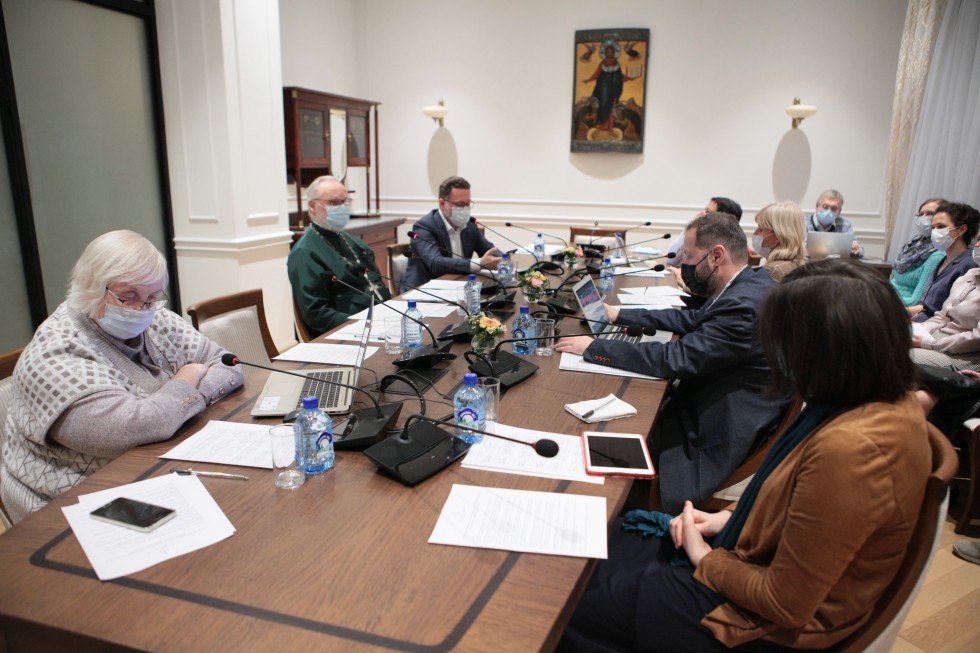
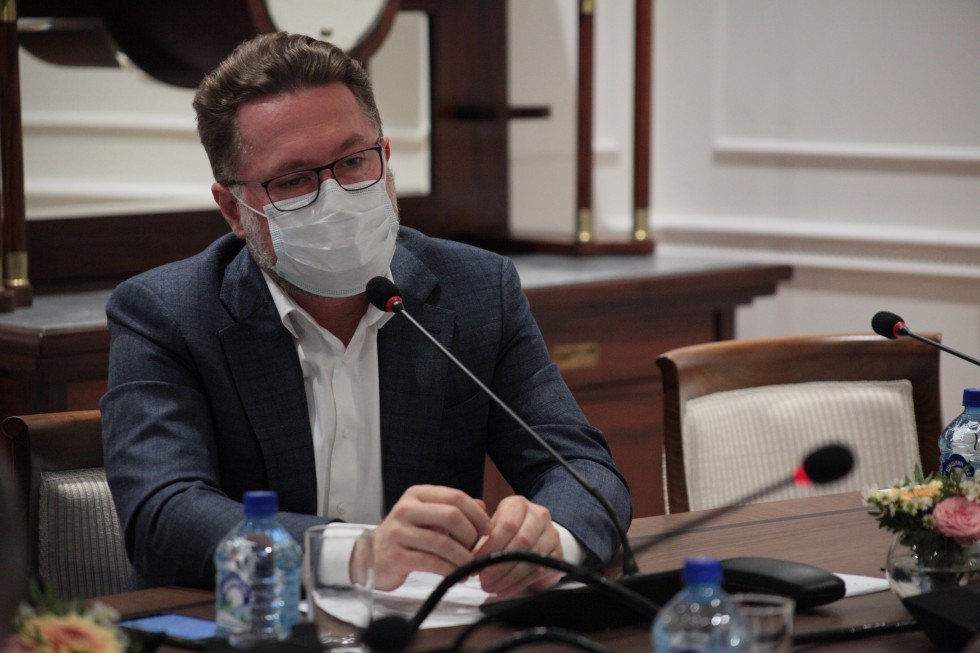
Дмитрий Гасак, первый проректор СФИ, ведущий круглого стола
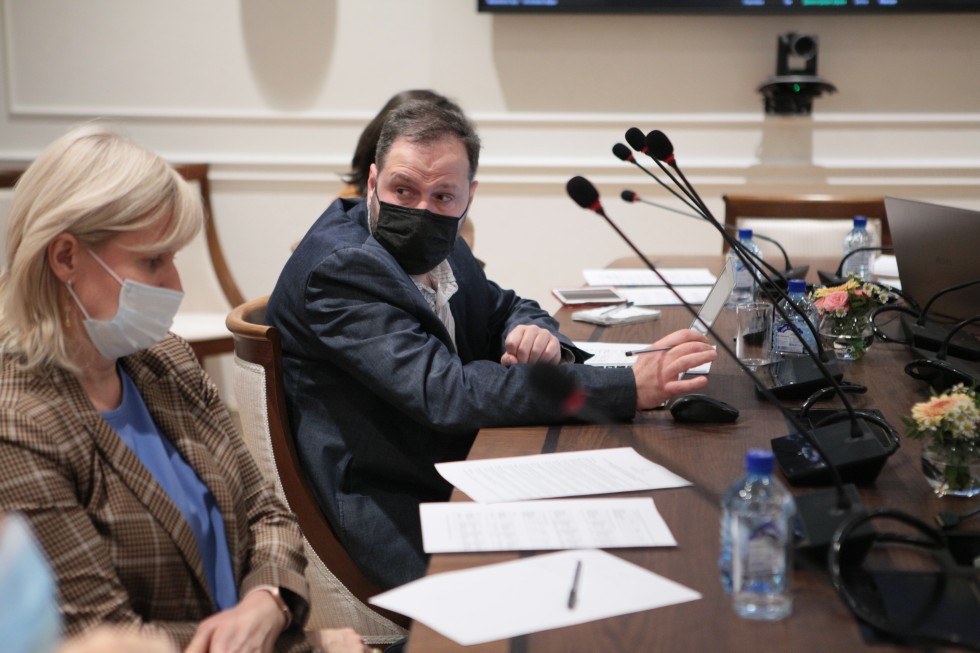
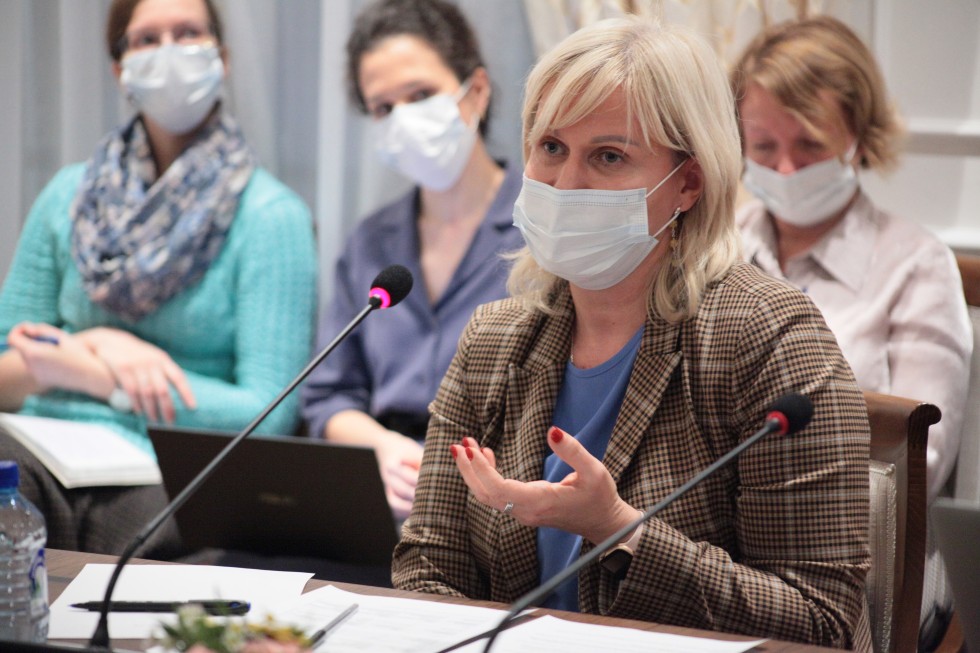
Елена Миськова, кандидат исторических наук, доцент, заместитель заведующего кафедрой этнологии исторического факультета Московского государственного университета
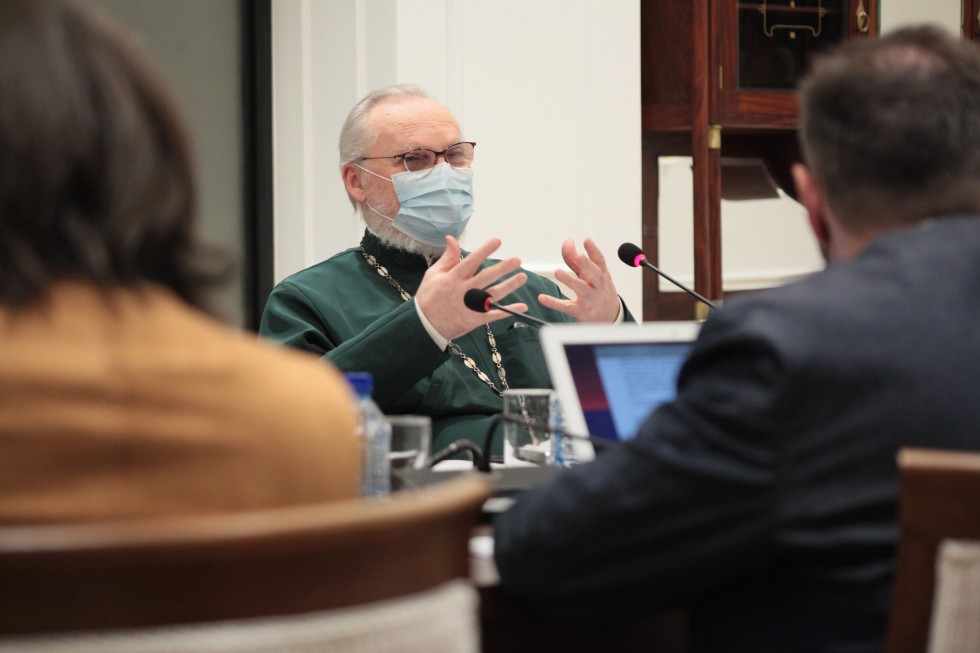
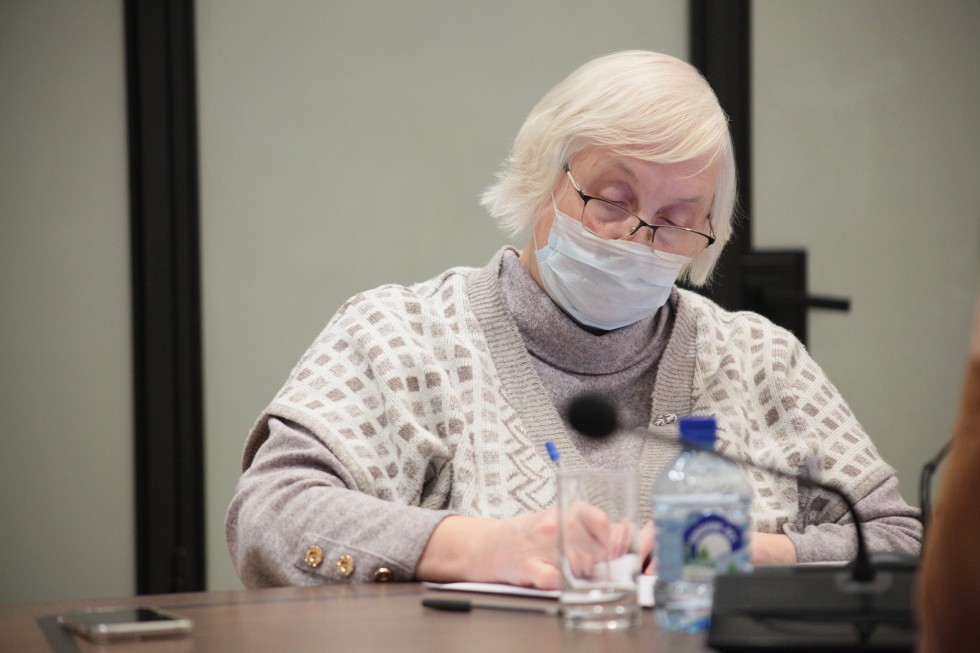
Маргарита Шилкина, кандидат философских наук, доцент, декан Факультета религиоведения СФИ

